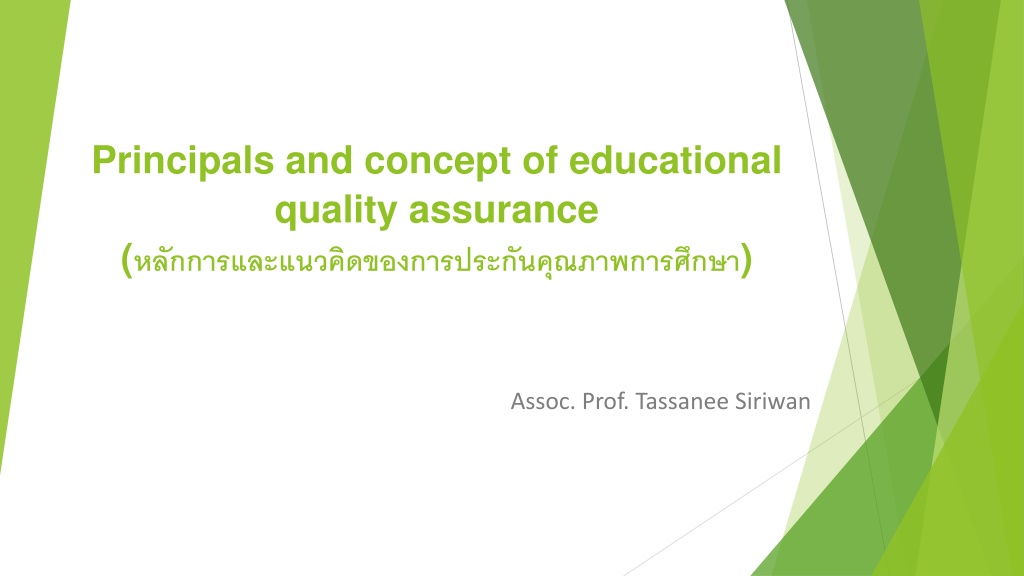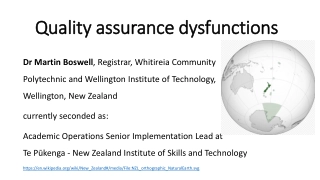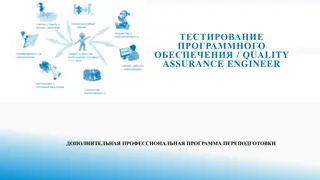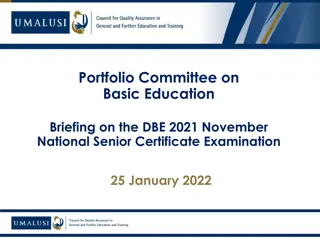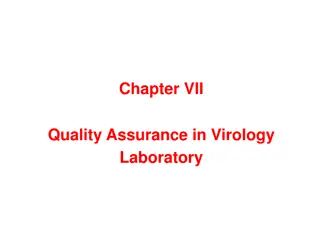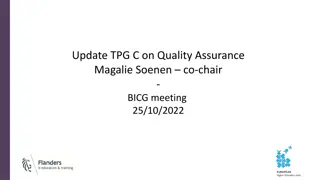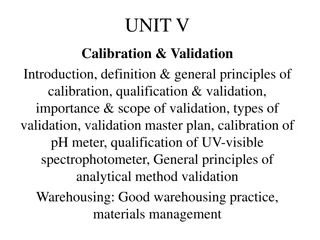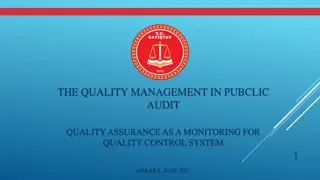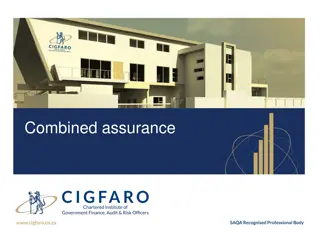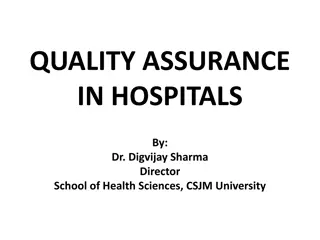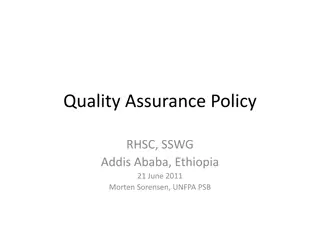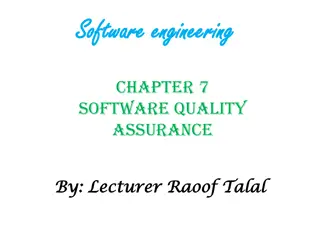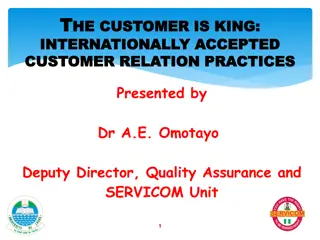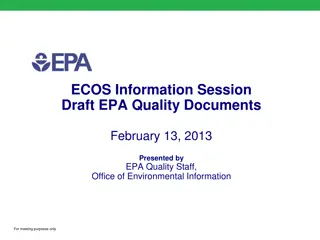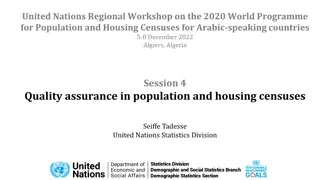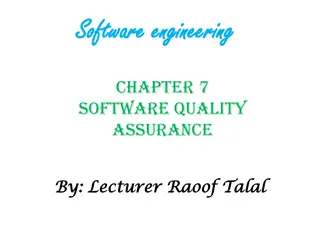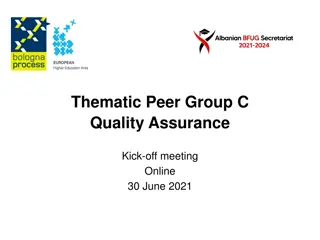Educational Quality Assurance: Principles and Concepts
Educational quality assurance involves systematic processes to ensure that educational standards are maintained, learners' development is appropriate, and the education system is credible and transparent. It includes principles such as coherence, professionalism, and more to enhance the quality of education.
Download Presentation

Please find below an Image/Link to download the presentation.
The content on the website is provided AS IS for your information and personal use only. It may not be sold, licensed, or shared on other websites without obtaining consent from the author. Download presentation by click this link. If you encounter any issues during the download, it is possible that the publisher has removed the file from their server.
E N D
Presentation Transcript
Principals and concept of educational quality assurance ( ) Assoc. Prof. Tassanee Siriwan
What is quality? Quality is the degree to which an object or entity (e.g. process, product, or service) satisfies a specified set of attributes or requirements. Quality is the degree to which a set of inherent characteristics fulfils requirements.
What is Assurance? Assurance refers to financial coverage that provides remuneration for an event that is certain to happen. Assurance can also refer to professional services provided by accountants, lawyers, and other professionals. These professionals assure the integrity and usability of documents and information produced by businesses and other organizations.
quality assurance (QA) Quality assurance (QA) is any systematic process of determining whether a product or service meets specified requirements. A quality assurance system is meant to increase customer confidence and a company's credibility, while also improving work processes and efficiency, and it enables a company to better compete with others.
educational quality assurance Education Quality Assurance means systematic quality management and evaluation measures adopted by schools or education providers and external validation agencies to monitor, supervise and evaluate educational inputs process and the outputs for the purposes of: - maintaining approved educational standards, - ensuring appropriate education development of learner; - providing public accountability/transparency; - ensuring the credibility and integrity of the education system; and - ensuring constant review, improvement and renewal policies and practices.
The eight guiding principles 1. Coherence : 2. Professional learning communities : 3 . Trust and shared accountability : 4. Support innovation : 5. Shared understanding and dialogue : 6. Networks : 7. Building capacity for data : 8. Different data for balanced view :
The developing educational quality assurance system 3 steps 1. The developing educational quality assurance system 2. Quality inspection 3. Quality Assessment
What is the importance of quality assurance in basic education for ? - parents, communities, social - management team, teacher, student E-mail: tassanee.si@ssru.ac.th Line: EDM02 Edu Qua Assur
